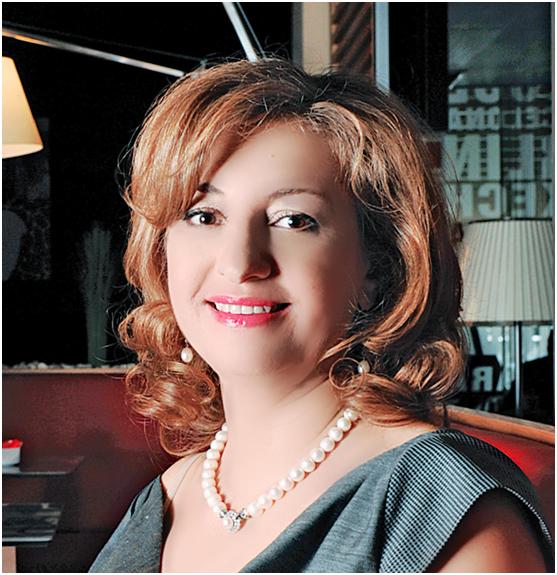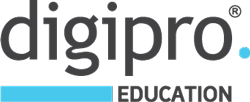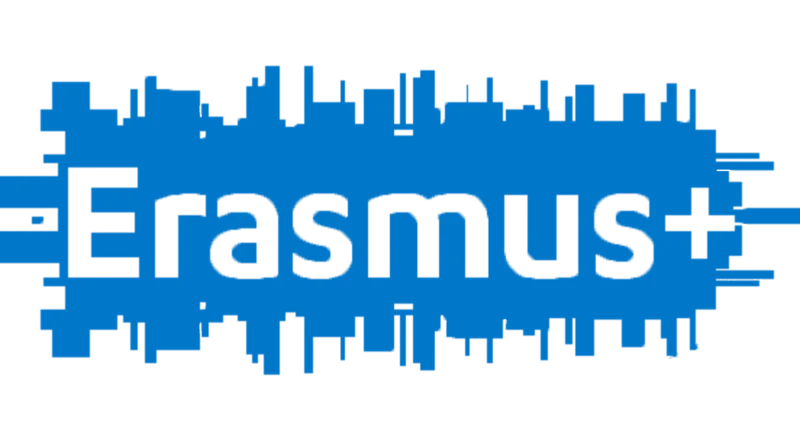Decoding Digital Media: Media Literacy and Digital Citizenship for the K-12

Instructor
-
 Chryso ChristodoulouCEO - Founder
Chryso ChristodoulouCEO - FounderMrs. Chryso Christodoulou is the founder of FUNecole® Research Institute and the co-founder of Digipro Education Limited. Her academic background is in Computer Science and Education. She is the designer and author of the FUNecole® for Cambridge ICT Starters Initial Steps endorsed by University of Cambridge International Examinations and recognized best practice educational approach by the European Commission. Mrs. Christodoulou is an external educational expert for the Institute of Prospective Technological Studies (IPTS) on various educational research projects. She is a program committee member for the Institute of Electrical and Electronics Engineers’ (IEEE) Computer society. Mrs. Christodoulou participates as keynote speaker and panelist at numerous conferences, seminars and workshops around the world. Mrs. Christodoulou´s work has been published in scholarly and policy publications, such as IEEE Xplore and the European Parliament Magazine. She is a recognized as an entrepreneurship expert by OECD and is one of 350 European Ambassadors of Entrepreneurship.
Date
- Jun 01 - 07 2025
- Ongoing...
Time
- 1:00 am - 8:30 am
Outline:
- With the rise of misinformation, cyber threats, and the growing influence of social media, it is essential for educators to prepare students for responsible digital engagement. Key challenges in media consumption, online communication, and digital ethics, need guide educators to empower students in critically evaluating information, protecting their digital identity, and fostering a culture of respectful and informed digital interaction.
- Educators need to navigate students in digital landscapes, distinguish credible sources from misinformation, and become ethical, informed digital citizens. This seminar equips educators with the knowledge, tools, and strategies to foster critical media literacy skills and responsible digital citizenship, ensuring students become informed, ethical, and engaged digital participants.
- Teachers (pre-school, primary, secondary, vocational, adult education)*
- Teacher trainers(pre-school, primary, secondary, vocational, adult education)*
- Curriculum coordinators/designers (pre-school, primary, secondary, vocational, adult education)*
- Head teachers/principals/deputy-assistant heads/academic heads/managers (pre-school, primary, secondary, vocational, adult education)*
*Any discipline/subject is welcomed including science, ICT/technology, engineering, mathematics, languages, business/finance, arts, sports and other.
- – Explore Digital Media & AI’s Role in shaping news, education, and communication.
- – Understand AI-driven content curation (e.g., social media algorithms, personalized feeds, and bias).
- – Develop fact-checking skills and learn how to teach students to critically.
- – Detect misinformation, deepfakes, and AI-generated content in educational and social media settings.
- – Promote ethical digital citizenship and responsible online behavior.
- – Enhance cybersecurity and online privacy awareness in schools.
- – Integrate AI-powered tools into the classroom for a safer and more informed digital learning environment.
- – Identify Misinformation, Fake News, and AI Detection.
- – Analyze viral misinformation campaigns in education and social media.
- – Promote ethical AI use, digital rights, and online safety in education.
- – Recognize & Prevent AI-Driven Cyberbullying and Cyber Threats.
The workshop methodology aims to support participants in how to expand their own personal skills and knowledge. This aim will be accomplished by providing robust and well-designed case studies, integrating sample educational demos, presenting and discussing real-life scenarios, performing group assignments and demonstrating web-enabled tools and recourses. There will be also presentations using PowerPoint slides, videos and various other multimedia tools.
Participants will be guided in a very concise way, both on the strategic side and on the practical classroom management side. Participants will be asked to bring their own materials into the seminar and will be encouraged to interact with the lecturers and other participants. This workshop will follow a very pragmatic approach that will enable the active participant interaction.
The seminar notes are going to be available to participants in hard copies as well as in electronic form via a dedicated online class blog.
Participants are strongly encouraged to bring their own laptops
Prior to the course, participants will answer a questionnaire. All answers will be posted on a special class blog. These will include the following:
- Basic information on the social context of their school.
- Description of the prevailing culture regarding innovation and creativity.
- The ethos of the school regarding 21st century practices and on line tools.
- The expected impact for school, students, and teachers.
DAY 1 – SUNDAY
16:30 – 18:30
Foundations of Media Literacy & Digital Citizenship
Understanding media in the digital age.
The role of media in shaping perceptions.
Identifying misinformation, bias, and deep fakes.
How to navigate, analyze, and critically engage with digital media.
Fact-checking tools and strategies.
Guided Group Project: The Viral Misinformation Experiment
Investigate how misinformation spreads and how it can be identified.
Use AI tools like NewsGuard & Google Fact Check Explorer to verify sources.
Compare different sources and identify bias and misleading headlines.
Present findings on how misinformation impacts society.
DAY 2 – MONDAY
09:00 – 16:30
Digital Footprints & Online Identity
Managing digital reputations.
Privacy, data security, and personal information protection.
How AI-generated content impacts digital information.
Hands-on fake vs. real news analysis.
Ethical social media use and cyber responsibility.
Group Project: Your Digital Footprint Challenge
Participants conduct a “Google Yourself” challenge.
Analyze their own digital footprint.
Brainstorm strategies to protect personal information online.
Present solutions for improving digital reputations.
DAY 3 – TUESDAY
09:00 – 16:30
Misinformation, Fake News & Deepfakes
Recognizing bias, manipulation, and misinformation in digital media.
AI Tool: Deepware Scanner & Sensity AI for spotting deepfakes.
Group Project: Truth or Trap?
Analyze online articles, social media posts, or news clips.
Identify bias indicators, fake statistics, and manipulated images.
Debate findings and create a strategy for teaching misinformation awareness.
DAY 4 – WEDNESDAY
09:00 – 16:30
Social Media, Echo Chambers & Digital Influence
Understanding algorithm-driven content and filter bubbles.
AI Tool: Hoaxy by Indiana University to visualize misinformation spread.
Discussion: How social media affects student perception and learning.
Group Project: Breaking the Echo Chamber
Investigate how social media algorithms create echo chambers.
Compare how different platforms present trending topics.
Suggest ways to diversify online information consumption.
DAY 5 – THURSDAY
09:00 – 16:30
Cybersecurity, Digital Safety & Ethical Digital Citizenship
Data privacy, online tracking, and cybersecurity basics.
AI Tool: Google Safe Browsing & Norton Safe Web for hands-on security checks.
Group Project: Creating a Student-Friendly Digital Safety Guide
Design an easy-to-understand guide for K-12 students.
Provide strategies to enhance online security and ethical behavior.
DAY 6 – FRIDAY
09:00 – 16:30
AI, Plagiarism & Ethical Content Creation
Understanding AI-generated content, plagiarism, and fair use.
AI Tool: Turnitin AI & Creative Commons Checker for content verification.
Group work: Designing AI-integrated lesson plans for ethical digital literacy.
Finalizing and Presenting Group Projects
Teams present their AI-integrated lesson plans.
Feedback and discussion on ethical AI use in education.
DAY 7 – SATURDAY
The Future of Learning in Safe Hands: Teachers, Parents, and Learners
Participants showcase their innovative AI-driven teaching activities.
Sharing experiences and best practices from the seminar.
Interactive discussions on AI’s evolving role in education.
Conclusion & Farewell Lunch


